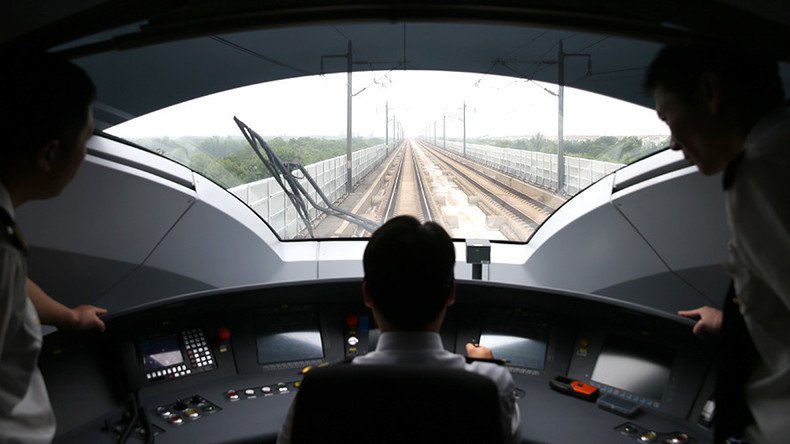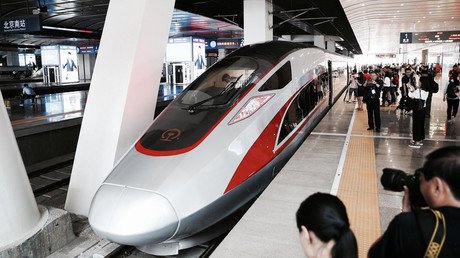Chinese bullet trains to operate world's fastest service between Beijing & Shanghai

The world’s fastest train will start running between Beijing and Shanghai in late September, knocking an hour off the 1,318 kilometers journey.
The route, opened in 2011, is one of China's busiest lines, with millions of passengers annually using the service, according to the state-owned operator China Railway.
Following several successful tests, the corporation will put into service seven pairs of bullet trains named Fuxing – rejuvenation – a slogan promoted by Chinese President Xi Jinping.
Fuxing trains will reportedly make 14 return trips a day at an average speed of 350 kilometers per hour (kph) and a maximum speed of 400 kph, 50 kph faster than the previous versions.
The new model is equipped with a monitoring system able to automatically slow down the train in case of emergencies.
Chinese railway authorities had previously tried to run trains at a maximum speed of 350 kph. In 2011, a signaling system fault caused a deadly train crash in Wenzhou, Zhejiang province. After the accident that claimed the lives of 43 people, China reduced the speed limit for its fast trains.
However, to boost domestic and international trade, Beijing upgraded the country’s railroads. China operates the world’s longest railway network, accounting for nearly 60 percent of the global total.
China's Fuxing trains will run on Beijing-Shanghai #highspeedrail at 350 km/h from Sept, world's fastest commercially-used bullet trains pic.twitter.com/qwLdYnPYHR
— China Xinhua News (@XHNews) August 21, 2017
Railroads are China's main traffic artery to sell its goods abroad, particularly under the country's ‘Belt and Road Initiative.'
Last year, the country had 22,000 kilometers of high-speed rail lines, and Beijing intends to increase that to 30,000 kilometers by 2020.













